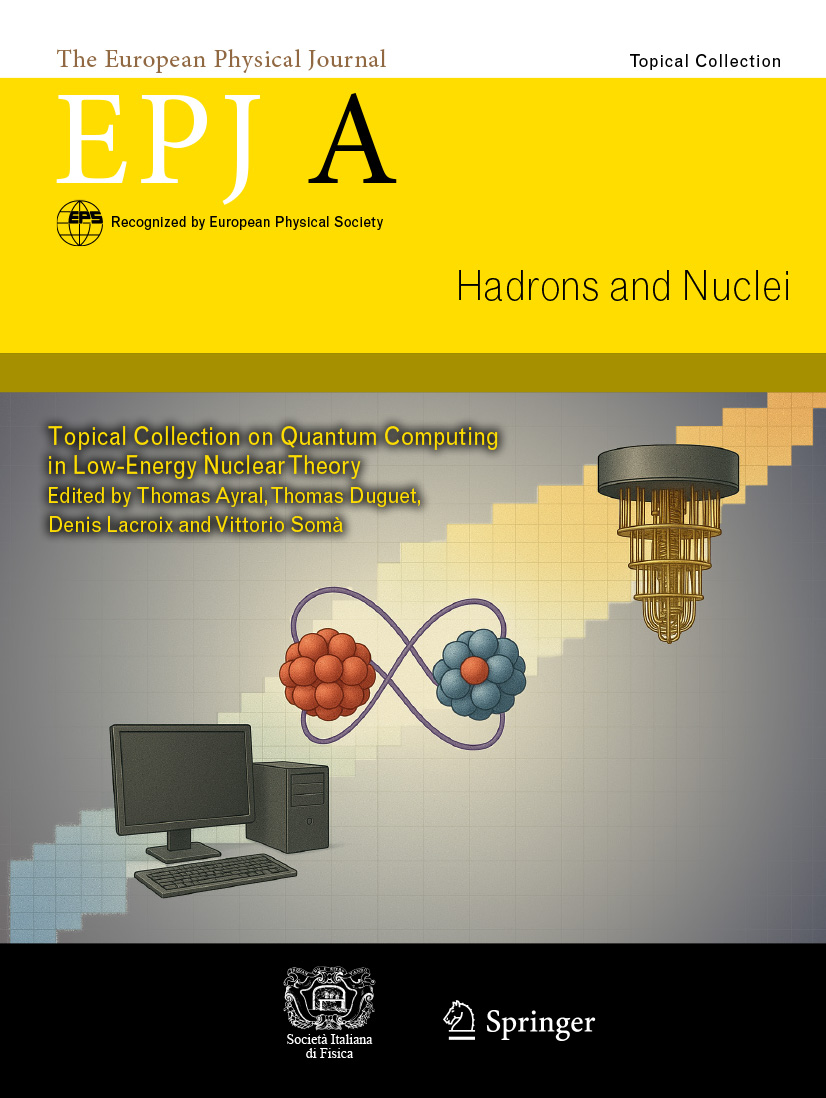EPJ A Topical Collection: Quantum Computing in Low-Energy Nuclear Theory
- Details
- Published on 23 June 2025

Guest Editors: Thomas Ayral, Thomas Duguet, Denis Lacroix, Vittorio Somà
Quantum computing has rapidly evolved from a theoretical concept to an active field of research with real-world prototypes. Major companies and startups are racing to build increasingly powerful quantum devices, and first demonstrations of so-called “quantum advantage” have already taken place. While these machines remain limited by noise and the number of qubits, the emergence of the NISQ (noisy intermediate-scale quantum) era, and the first indications of a transition towards Fault-Tolerant machines are fueling innovations across many disciplines. Nuclear physics, with its complex many-body problems, is one of the most promising areas to benefit from these advances.
This topical collection explores the growing intersection between quantum computing/quantum information and low-energy nuclear physics/related areas. It brings together a set of articles aimed at both introducing scientists to this evolving field and highlighting recent breakthroughs. The focus is on how quantum devices—despite their current limitations—can be used to simulate highly correlated quantum systems such as atomic nuclei. These simulations may in the future eventually tackle problems that are currently beyond the reach of even the most powerful classical supercomputers.
The development of quantum algorithms is a central theme. Because today’s quantum devices are noisy and constrained in circuit depth, researchers are designing novel hybrid quantum-classical algorithms that make the most of limited resources. The articles provide insight into how these methods are being applied in nuclear physics, building on pioneering simulations of relatively small many-body systems and extending toward more complex systems. Topics such as symmetry restoration, control optimization, and spectral density calculations are explored, offering a glimpse into how quantum algorithms can unlock new physics.
Beyond simulations, the collection also looks at the quantum hardware platforms themselves—trapped ions, cold atoms, superconducting qubits, photonic systems, and silicon-based processors. Each technology comes with unique strengths and challenges, and understanding them is key to developing effective quantum algorithms. Several contributions also examine the role of quantum information theory, including entanglement and information flow in nuclear many-body systems. The synergy between quantum computing and nuclear physics is still in its early stages, but the progress is clear. As quantum hardware improves and more sophisticated algorithms are developed, the potential for real scientific impact grows. This issue aims to serve as both a gateway for newcomers and a resource for experts, reflecting the rich and multidisciplinary efforts shaping this frontier.
All articles are available here and are freely accessible until 6 August 2025. For further information, read the Editorial.




